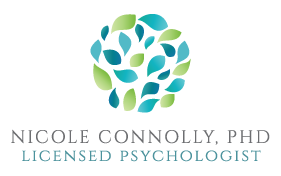The Role of Psychotherapy in Autism Spectrum Disorders
Today I was thinking about questions I frequently hear from parents, professionals, and others who are active in the autism community. One question that seems to come up with regularity has to do with providing psychotherapy to individuals on the autism spectrum.
Many times, others wonder what benefit psychotherapy can have for people with social and/or language deficits, especially when there are other therapies, such as applied behavioral analysis (ABA) and different group social skills programs, that have been empirically supported to address the most common problems in this group.
Certainly, for lower functioning individuals with limited language skills, psychotherapy is probably not going to be the best or most cost-effective option. And, research suggests that social skills are likely best learned in a group setting rather than one-on-one with a therapist.
However, for those with high functioning autism or Asperger's disorder, psychotherapy is uniquely suited to address certain common challenges.
Looking at epidemiological research - research that tracks the rates of mental health conditions among different groups of people - we find that problems like major depression, generalized anxiety, obsessive-compulsive disorder, panic disorder, and Tourette's syndrome are seen in a significant percent of people with high functioning autism/Asperger's disorder. Estimated rates range from 25-70% depending on the specific study.
In a neurotypical population, psychotherapy, particularly cognitive behavioral therapy, has been shown to be very effective at treating these conditions. Which then leads to the question - why wouldn't it be effective for those with high functioning autism/Asperger's disorder?
Research has been slow to look at this topic in a systematic way. However, in recent years, Dr. Jeffrey Wood at the University of California, Los Angeles, has been conducting clinical trials using cognitive behavioral therapy to treat anxiety in children and adolescents with high functioning autism/Asperger's disorder. In his studies, he has modified the standard cognitive behavioral therapy manuals to fit with the unique strengths and weaknesses seen in kids with autism/Asperger's disorder. Preliminary results have looked very promising.
In addition to treating these co-occurring conditions, I would argue that therapy can also have more intangible benefits, such as providing a place for the individual to better understand and come to terms with the diagnosis and offering a place of support and acceptance in a confusing, rejecting world.
Therapy can also have significant benefits for parents, siblings, and other significant individuals who struggle with stress related to their loved one's condition.If you are considering therapy for yourself, your child, or your family, I would encourage you to research local providers and find one who is experienced in working with autism spectrum disorders. Any time you are looking for a therapist, it is important to ask questions to understand how the therapist approaches different problems and how they would work with your situation specifically.
